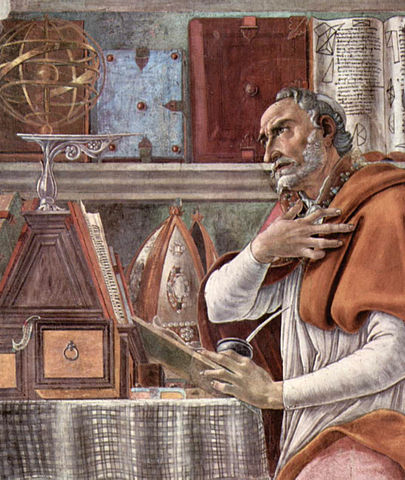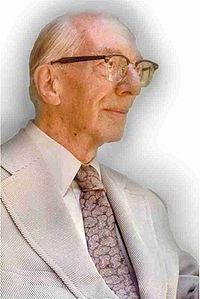
Augustine of Hippo (354–430) was a contemporary of Hypatia and the Patriarch Cyril. Originally a Manichaean, his conversion to Christianity was for many centuries regarded by clerics as a triumph over the supposed evil of dualism. The followers of Mani reaped violent opposition and infamy.
Augustine is sometimes described as a Christian philosopher. Bertrand Russell admitted him into a famous canon of Western philosophy alongside Ambrose, Jerome, Aquinas, and others (History of Western Philosophy, 1946). Augustine himself clearly viewed philosophy as secondary to revelation. His outlook is complicated by the doctrine of predestination.
He was born in the Numidian town of Thagaste, in what later became Algeria. His middle-class father was a pagan and his mother a Christian. At seventeen he moved to Carthage for further education in Latin literature, acquired a long-term concubine, and became a pedagogue in the classical mode.
When he read Cicero’s Hortensius in 373, Augustine was inspired by an exhortation to philosophy. However, he did not become a Stoic or a Platonist, but instead converted to Manichaeism, becoming a “Hearer” for about nine years.
Still a pagan, he moved to Italy in 383, becoming professor of rhetoric at Milan. The preaching of Bishop Ambrose caught his attention; Ambrose borrowed from Plotinus in sermons used for the episcopal cause. Around 386, Augustine obtained Neoplatonic texts that strongly influenced him—an influence understated in his Confessions.
According to Peter Brown, Augustine deliberately minimised the extent of his Neoplatonic exposure. These texts likely included treatises of Plotinus in Latin translation by Victorinus. Augustine did not read Greek and wrote exclusively in Latin.
The Confessions were patently the work of a Neoplatonic philosopher, though infused with emotional introspection absent from Plotinus’ Enneads. Where Plotinus expressed quiet confidence, Augustine felt existential precariousness.
Composed after he became a bishop, the Confessions emphasise the triumph of Christianity. Augustine converted in 386, was baptised the following year, ordained priest in 391, and became bishop of Hippo in 395. He abandoned the contemplative life in favour of ecclesiastical authority.
As bishop, Augustine arbitrated lawsuits and campaigned aggressively against Donatists. He endorsed imperial coercion against them, culminating in the proscription of Donatism by Emperor Honorius in 412. The Catholic cause emerged victorious.
In The City of God, Augustine opposed Roman paganism following the sack of Rome in 410. He argued that pagan gods had failed to save the empire and recast them as morally bankrupt entities. Roman rhetorical influence is evident throughout the work.
Augustine awarded deference to Plato and Aristotle but criticised Platonists for refusing Christ as the universal route to salvation. Porphyry was rebuked, though praised for opposing theurgy.
Augustine’s dogmatism was most evident in his attack on Pelagius, who rejected original sin and affirmed free will. Augustine countered with a doctrine of grace and predestination, securing Pelagius’ condemnation as a heretic.
Augustine’s determination to destroy his opponent hardened into obsession, ensuring that Pelagius and his supporters would find no refuge within the Church.
(Rees, 1988:130)
Augustine’s theology facilitated the doctrine of eternal damnation. This concept justified centuries of persecution, torture, and execution of heretics, culminating in the medieval and Spanish Inquisitions.
Bibliography
Augustine, Concerning the City of God Against the Pagans, trans. H. Bettenson (Penguin, 1984).
—— Confessions, trans. Henry Chadwick (Oxford University Press, 1991).
Bonner, Gerald, St. Augustine of Hippo: Life and Controversies (Westminster Press, 1963; rev. ed. 2002).
Brown, Peter, Augustine of Hippo: A Biography (Faber, 1967; 2nd ed. 2000).
Rees, B. R., Pelagius: A Reluctant Heretic (Boydell Press, 1988).
Russell, Bertrand, History of Western Philosophy (George Allen & Unwin, 1946).
Kevin R. D. Shepherd
September 20th, 2012
ENTRY no. 46
Copyright © 2012 Kevin R. D. Shepherd. All Rights Reserved.


